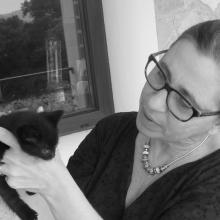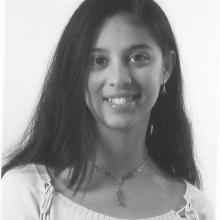Laboratory of Psycholinguistics
Research in the Laboratory of Psycholinguistics focuses on language processing at the word and sentence levels.
We employ different experimental techniques (e.g., eyetracking, self-paced reading, lexical priming) to investigate aspects of lexical, morphological, and syntactic processing, in typical and atypical populations (e.g., L1 and L2 speakers, language and reading disorders).
Our research is primarily organized around four main lines:
- L1 and L2 processing, focusing on (a) cross-linguistic differences, particularly on specific properties of European Portuguese and its contrast with other languages and varieties, and (b) the determinants of intra- and inter-individual variability in language processing;
- Language processing from a lifespan perspective, with a focus on the multifaceted outcomes of aging across different linguistic domains and cognitive functions;
- Statistical methods for the language sciences: their development, promotion, and application to questions of psycholinguistic interest;
- Clinical linguistics, including the development of instruments for the assessment and training of linguistic competencies.
Selected publications
- Ciaccio, L., & Veríssimo, J.* (2022). Investigating variability in morphological processing with Bayesian distributional models. Psychonomic Bulletin & Review, 29, 2264–2274. [*equal contribution] https://doi.org/mg7p
- Fernandes, E., Luegi, P., Correa Soares, E., de la Fuente, I., & Hemforth, B. (2018) Adaptation in pronoun resolution: Evidence from Brazilian and European Portuguese. Journal of Experimental Psychology: Learning, Memory, and Cognition, 44, 1986-2008. https://doi.org/gk4ntd
- Freitas, M. J., Lousada, M., & Alves, D. C. (Eds.) (2022). Linguística clínica: Modelos, avaliação e intervenção [Clinical linguistics: Models, assessment, and intervention]. Language Science Press. https://langsci-press.org/catalog/book/358
- Pereira, N., Costa, A., & Guerreiro, M. (2022). Effects of word length and word frequency among dyslexic, ADHD-I and typical readers. Journal of Eye Movement Research, 15. https://doi.org/mx7x
- Veríssimo, J. (2021). Analysis of rating scales: A pervasive problem in bilingualism research and a solution with Bayesian ordinal models. Bilingualism: Language and Cognition, 24, 842–848. https://doi.org/gtgn
- Veríssimo, J., Verhaeghen, P., Goldman, N., Weinstein, M., & Ullman, M. T. (2022). Evidence that ageing yields improvements as well as declines across attention and executive functions. Nature Human Behaviour, 6, 97–110. https://doi.org/gmh3bj
- Villalva, A. (2022). Complex verbs: The interplay of conversion and other word-formation processes. In A. E. Ruz, C. Fernández-Alcaina, & C. Lara-Clares (Eds.), Paradigms in word-formation (249-282). John Benjamins. https://doi.org/mx7w
History
Our research in psycholinguistics began in the early 1980s with the studies of Prof. Isabel Hub Faria on paranoid schizophrenic discourse. A few years later, the ‘Group for the Study of Language and Cognition’ was founded, which brought together researchers in psychology, linguistics, cybernetics, and mathematics. Our first studies on language acquisition took place around this time and contributed to the development of child language corpora.
In the late 1980s, the ‘Laboratory of Psycholinguistics’ was formally recognized as a research group within the Center of Linguistics of the University of Lisbon (CLUL) and we gained access to our first laboratorial facilities. More recently, we have acquired a range of well-equipped facilities for conducting eye-tracking and behavioral tasks, including an experimental booth for data collection and Eyelink eye-trackers (both static and portable).
Throughout its history, the members of the Laboratory of Psycholinguistics have conducted research on aeras such as language processing, reading, speech perception and production, language acquisition and development, second language learning and processing, language disorders, and Portuguese sign language.
Much of this research has involved close collaborations with national and international institutions, including other schools of the University of Lisbon and universities in Brazil (UFP, UFRJ, UFSC), Germany (Goethe Frankfurt, Potsdam) and the USA (Georgetown).
Isabel Hub Faria founded the Laboratory of Psycholinguistics and directed it until 2009. Since then, the research group has been headed by Armanda Costa, Isabel Falé, and currently, by João Veríssimo and Paula Luegi.
Membros
Integrated members with PhD
Integrated members without PhD
Colaboradores
Concluded
| Project | Date | Fin. |
|---|---|---|
| Reading comprehension. Word, sentence, and text processing | - | FCT
|
| Resources | Type |
|---|---|
| Economics e-Translations into and from European Languages | Database |
| O guia de pronúncias em português - Port_ProDi | Database |
. (2005). Periplo pola fraseoloxía portuguesa: abordaxe lexicográfica. . |
. (1992). Les expressions idiomatiques correspondantes: une analyse comparative. . |
. (2014). Processamento e interpretação de sujeitos nulos e plenos em Português Europeu e em Português do Brasil. Cadernos De Letras Da Uff. http://doi.org/http://dx.doi.org/10.22409/cadletrasuff.2014n49a7 |
. (2011). Using eye-tracking to study anaphoric relations processing in European Portuguese. Journal Of Eye Tracking, Visual Cognition And Emotion, 1, 41-49. Retrieved from http://hdl.handle.net/10437/2310 |
. (2011). Using eye-tracking to detect reading difficulties. Journal Of Eye Tracking, Visual Cognition And Emotion. Retrieved from https://revistas.ulusofona.pt/index.php/JETVCE/article/view/2049 |
. (2012). Processamento da correferência e sujeitos anafóricos – dados sobre o Português Europeu e Brasileiro. Revista Linguística - Correferência Anafórica: Representação, Aquisição E Processamento, 8(2). http://doi.org/https://doi.org/10.31513/linguistica.2012.v8n2a4558 |
. (1991). Free topic. . |
. (1998). Inflected Infinitives Revisited – Genericity and Single Event. . |
. (2001). Padrões de interrogativas-Q no Português Europeu e no Português Brasileiro: uma análise inter e intra-lingüística. Boletim Da Associação Portuguesa De Lingüística, Número Especial I, Ii Congresso Internacional Da Abralin, 26, 400-404. |
. (2002). Topic vs. Comment In Some Subject Inversion Sentences In French And Portuguese. Journal Of Portuguese Linguistics, 1. |
. (2008). On some special adverbs, word order and CP. Variation Vs. Micro-Variation. Canadian Journal Of Linguistics – Revue Canadienne De Linguistique, 53. |
. (2016). Exploring memory issues with the brand names of medicines. International Journal Of Pharmacy And Practice, 24. Retrieved from http://labfon.letras.ulisboa.pt/files/Cavacoetal\_2016\_IJPP.pdf |
. (2014). Landmarks of Economic Terminology: The First Portuguese Translation of Elémens du commerce. History Of European Ideas, 40. Retrieved from http://dx.doi.org/10.1080/01916599.2014.968334" |
. (2002). Para uma tipologia de erros. . |
. (1982). Contribuições para o Estudo do papel da escola primária na orientação para o significado. . |
. (2007). Grão a grão enche o provérbio a tradição. Polifonia, 10. |
. (2005). e P. Torres (2005). Automatismos Lexicais E Resistência À Tradução: O Caso Dos Falsos Amigos. Polifonia, 8. |
. (2005). & R. Andrade (2005). Traduction Et Créativité: La Langue De Mia Couto. Polifonia, 8. |
. (2003). As cores preto no branco: uma análise comparativa. Polifonia, 6. |
. (2002). Da palavra às palavras: alguns elementos para a tradução das expressões idiomáticas. . |
. (2001). Estar na lua: être dans la lune ou sur la lune? Expression de l espace et représentations du monde. Polifonia, 4. |
. (2001). Algumas reflexões em torno das expressões idiomáticas enquanto elementos que participam na construção de uma identidade cultural. . |
. (1999). La création et les jeux de langage. Du Proverbe À L Expression Idiomatique. Identité Et Altérité. Polifonia, 2. |
. (1997). Despedir-se à francesa/filer à l anglaise. Reflexões Em Torno Da Tradutologia Das Construções Fraseológicas Na Perpetiva Interlínguas. Polifonia, 1. |
. (2017). Como o cérebro processa a informação semântica em indivíduos com e sem Perturbações do Processamento Auditivo (Central): da investigação ao ensino e à prática clínica. Ciências Aplicadas: Coletânea De Estudos, 1, 165-187. |
. (2018). Complexidade Morfológica e Custos de Processamento Lexical. Alfa, Revista De Linguística, 62(1). |
. (2010). Eye movements during reading. Psycholinguistics Scientific And Technological Challenges, Selected Papers: 8Th International Congress Of The International Society Of Applied Psycholinguistics, 159-172. |
. (2009). Complexidade linguística e processamento referencial. Anais Do Vi Congresso Internacional Da Abralin, 2127-2135. |
. (2007). Mover para ler: o movimento dos olhos durante a leitura de textos. Atas Do Xxii Encontro Nacional Da Associação Portuguesa De Linguística, 431-445. |
. (2013). Os adjetivos formados em –vel em Português: estrutura argumental, estrutura temática e aspeto da base verbal. Revel: Revista Virtual De Estudos De Linguagem, 11, nr 20. |


















